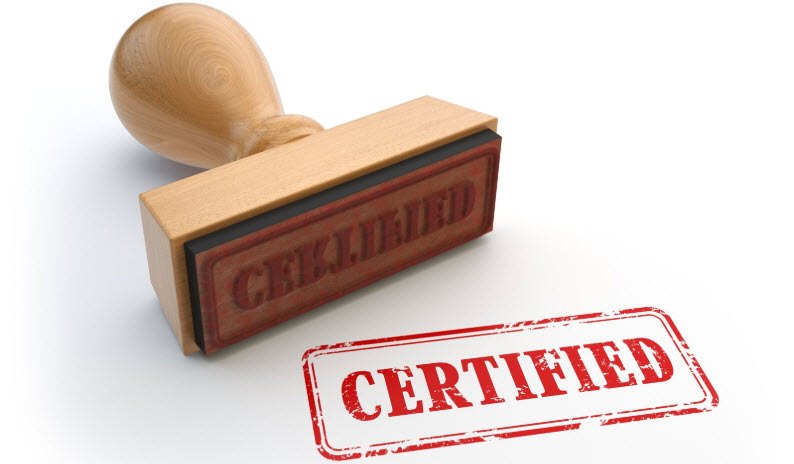Compliance and certification are two different steps of the Quality Management System (QMS), which seek the same goal: to obtain a total quality of products at the end of the production process.
Certification is a written assurance given by a third party that a product, service, system or person complies with requirements defined in a standard and is regularly checked. Certification is primarily intended for consumers and users who get a guarantee of quality in the broadest sense.
Certification is issued following the evaluation of the systems, products or professional skills that are the subject of the application. If the result of this evaluation reveals that the requirements set out in the applicable reference framework are fulfilled, the certification is then issued.
The Main Advantages of Getting an ISO 9001 Certification
Customer orientation is vital for organizations. Clients require a high quality standard in the products they purchase and the services they hire. Therefore, companies that have a regulatory framework such as the ISO 9001 tends to minimize risks and improve their results.
Furthermore, a company that has decided to get a certification for ISO 9001 can obtain the following benefits:
- The organization can easily prove its compliance to clients and interested parties.
- The organization is recognized for its efforts by independent entities.
- The level of audit by customers is considerably reduced.
- Many customers demand their suppliers and subcontractors be certified.
The Difference Between Compliance and Certification for ISO 9001
Though with similar goals, both compliance and certification for ISO 9001has some differences.
The difference between compliance and certification for ISO 9001 is unfortunately still unknown by many people. Faced with this observation, a clarification is needed.
Depending on the product, a compliance assessment may include testing, inspection, and evaluation of supplier quality management systems. Certification for ISO 9001on the other hand is a process by which a third party provides written assurance that an organization, product, or service conforms to the requirements of a given repository.
Obtaining certification for ISO 9001 for a company is a privileged way to show the quality of its products or services to its customers and suppliers. It guarantees that the organization of the company, its technical means, and its human resources are well mastered.
This is a voluntary act whose purpose is primarily commercial because it can provide businesses with a competitive advantage by increasing customer confidence.
Product certification for ISO 9001, on the other hand, confirms your company’s commitment to excellence and communicates it to all investors, suppliers, workers, and customers. Today, most major companies perform reviews of their management system and conduct independent evaluations to accredit their compliance with ISO 9001 certifications on a regular basis.
In clearer terms, the famous ISO 9001 certification is the one that deals with establishing the guidelines that a quality management system must comply with. This ISO certificate guarantees that the company is committed to maintaining quality standards in accordance with the standard. In this way, the goods or services will have some tests that certify the quality of the production and a productive process oriented towards continuous improvement.
The ISO 9001 certification to the standard is applicable to organizations of any size and from all sectors/activities. In addition, it is accepted internationally as a guarantee of quality management, since it implies the implementation of major fundamental principles.
On the other hand, quality compliance entails the satisfaction of a requirement. The phrase often used for this is: “In accordance with a requirement”. Compliance is, therefore, the fulfillment of all of possible requirements.
Compliance can be demonstrated by the implementation of audit, control, indicators, performance measurement, checklist, etc. Although in the case of audits, it is not often put forward for compliance. In such a case, it is necessary to clearly identify the scope and the repository used.
In conclusion, unlike ISO 9001 certification, compliance is based on criteria and procedures specifically designed to assess technical competence. Furthermore, the terms compliance and certification ISO 9001 are sometimes used interchangeably as synonyms, while they refer to specific concepts and describe the end result of completely different processes. As a result, the differences highlighted above are of great importance.
